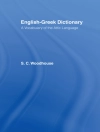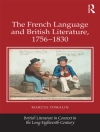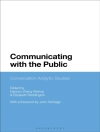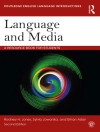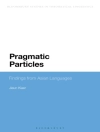Bilingualism and Language Pedagogy brings an understanding of language as a social practice, and bilingualism as the study of bidirectional transitioning, to the examination of bilingual settings in the US, Europe and developing countries. The volume suggests that language pedagogy needs to reflect new understandings of bilinguals. Focusing both on bilingual linguistic competence and educational politics and practice, the chapters provide valuable practical proposals and models for developing sociocultural and linguistic competencies among bilingual practitioners and students. The volume situates teachers as mediators and explores the key roles that they have as language and content educators. In discussing the experiences of learners, it takes up the linguistic competence of bilinguals, highlighting how their language use constitutes a resource for meeting the demands of social interactions, and foregrounds the significance of developing academic language proficiency in English among minority children to decrease the barriers facing them in residential and academic settings.
สารบัญ
Janina Brutt-Griffler and Manka Varghese: Introduction
Guadalupe Valdés: Between Support and Marginalisation: The Development of Academic Language in Linguistic Minority Children
Almeida Jacqueline Toribio: Spanish/English Speech Practices: Bringing Chaos to Order
Nancy H. Hornberger: The Continua of Biliteracy and the Bilingual Educator: Educational Linguistics in Practice
Brian Morgan: Teacher Identity as Pedagogy: Towards a Field-Internal Conceptualisation in Bilingual and Second Language Education
Angela Creese: Bilingual Teachers in Mainstream Secondary School Classrooms: Using Turkish for Curriculum Learning
Carol Benson: Do We Expect Too Much of Bilingual Teachers? Bilingual Teaching in Developing Countries
Manka Varghese: Professional Development for Bilingual Teachers in the United States: A Site for Articulating and Contesting Professional Roles
เกี่ยวกับผู้แต่ง
Manka Varghese is a Professor in Language, Literacy, and Culture and Chair in Teaching, Learning, and Curriculum at the University of Washington’s College of Education. Her research, teaching, and mentoring revolve around developing anti-oppressive frameworks and pedagogies in language teacher education, especially for teachers of multilingual students, which integrate teacher and student intersectional subjectivities and identities, theoretically and practically. Varghese has published widely on examining these intersections in journals such as Educational Researcher, Teachers College Record, and TESOL Quarterly as well as chapters in edited books and has co-edited a number of edited books.


